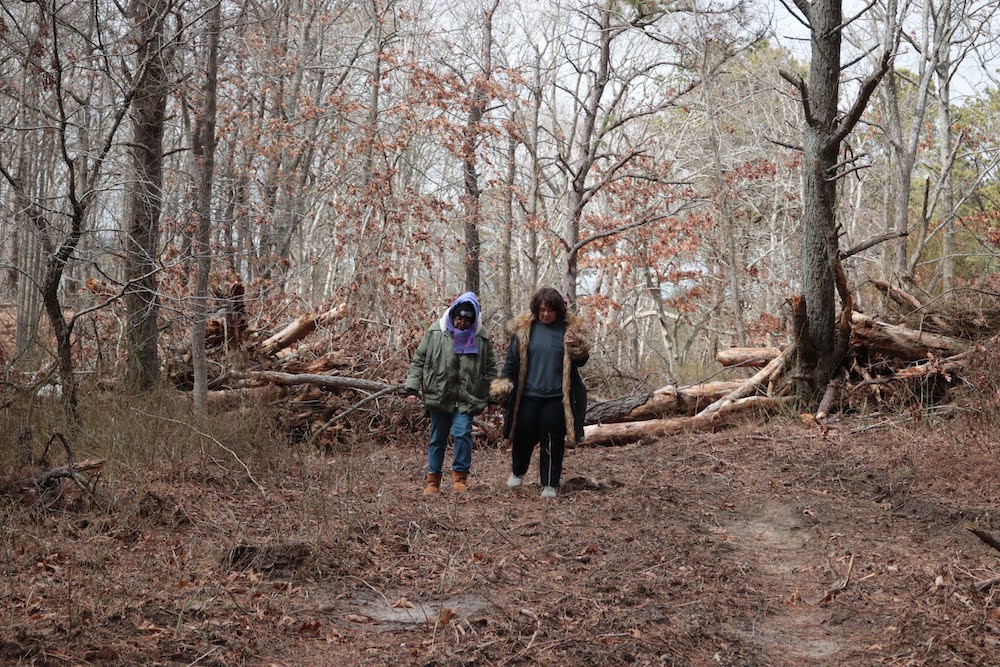
- Details
- By Jenna Kunze
Native American ancestors buried in New York will soon be protected by state law from unintentional excavation—a right the state’s tribal nations have been advancing for more than 20 years.
On Monday night, the state’s Senate and Assembly passed the unmarked burial site protection act as part of a budget bill. The law, once signed by the governor, will enact measures to prevent unmarked Native American burial sites from destruction when human remains or funerary objects are unearthed by developers during home construction or renovation.
A previous burial protection act was shot down at the last minute by New York Governor Kathy Hochul last December for failing to “balance the rights of property owners with the interests of the families of lineal descendants and other groups,” the governor wrote in her veto memo.
But after five months of continued negotiations between the Assembly, the Senate, and representatives from five tribal nations of New York—Shinnecock Nation, Seneca Nation, Oneida Nation, Unkechaug Nation, and St. Regis Mohawk— tribal representatives say they are happy with the bill on its way to the governor’s desk.
“We go from no protection, to significant protection,” said Unkechaug Nation Chief Harry Wallace, who lives on the Poospatuck Reservation in Mastic, Long Island. “That’s a big deal.”
Wallace is one of the tribal leaders involved in a decades-long effort to pass legislation to protect unmarked graves.
Currently, New York is one of only four states—including New Jersey, Wyoming, and Ohio— that doesn’t have a process in place for when burials are unintentionally unearthed on private property during development.
The new law establishes a chain of commands: First, developers or anyone disturbing the ground that discovers human remains are required to immediately cease work and notify a local coroner, who will call the state archeologist if the remains are more than 50 years old. The law also establishes a burial review committee tasked with affiliating remains and their burial items to a present-day Native American tribe, and establishes criminal penalties for those who don’t comply with the law.
Most importantly, Chief Wallace told Native News Online, the law bars property owners from handling any human remains or funerary objects themselves. That’s a significant change from the previous version of the bill that Hochul vetoed. That version gave property owners the right to remove human remains themselves after 60 days.
The new law only allows the state archaeologist—at the expense of the property owner— to remove human remains, and gives the “right of possession and stewardship” of human remains and cultural objects “exclusively” to lineal descendants or culturally affiliated groups, or to the state archeologist while cultural affiliation is being determined. Additionally, a culturally affiliated group has the right to having a cultural monitor on site prior to and during excavation.
“When ‘property owners’, which is a euphemism for developers, remove Indian bodies, they do so in a way that desecrates the remains, and they steal the funerary objects,” Wallace said.
Over the last two decades, there have been several grave desecrations on Long Island. In 2003, a developer on Shelter Island, off the coast of Long Island, unearthed a mass Native burial site on his property, then built a horse barn over the site.
In just the last two years, a local task force of roughly half a dozen Algonquian-speaking tribes from Long Island has reclaimed more than 150 human remains unearthed by archeologists and museums in Suffolk County—Long Island’s easternmost county—in the late 1800s and early 1900s.
“We know from our experience, and our history, that when a property owner touches Native remains, they desecrate them,” Wallace said. “Really this bill is just a correction of human behavior that’s long overdue.”
One of the bill’s negotiators from the Shinnecock Nation of Long Island, Tela Troge, told Native News Online that the legislation “fairly and equitably protects all interested parties, including landowners and lineal descendants of those persons who may be inadvertently discovered.”
Hochul is expected to sign the bill by the end of this week, according to Gioele Feltrin, the deputy legislative director for Assemblymember Fred Theile—who reintroduced the unmarked burial protection act in January 2023. “The sooner she signs it, the better.” Feltrin said.
More Stories Like This
Northern Cheyenne Push Back Against Trump Administration’s Effort to Alter Little Bighorn HistoryFlorida Man Sentenced for Falsely Selling Imported Jewelry as Pueblo Indian–Made
Navajo Nation Declares State Of Emergency As Winter Storm Threatens Region
The Prediction Market Boom is Posing an Existential Threat to American Indian Gaming
NARF Condemns ICE Actions, Says Native Americans Unlawfully Detained
Help us defend tribal sovereignty.
At Native News Online, our mission is rooted in telling the stories that strengthen sovereignty and uplift Indigenous voices — not just at year’s end, but every single day.
Because of your generosity last year, we were able to keep our reporters on the ground in tribal communities, at national gatherings and in the halls of Congress — covering the issues that matter most to Indian Country: sovereignty, culture, education, health and economic opportunity.
That support sustained us through a tough year in 2025. Now, as we look to the year ahead, we need your help right now to ensure warrior journalism remains strong — reporting that defends tribal sovereignty, amplifies Native truth, and holds power accountable.
 The stakes couldn't be higher. Your support keeps Native voices heard, Native stories told and Native sovereignty defended.
The stakes couldn't be higher. Your support keeps Native voices heard, Native stories told and Native sovereignty defended.
Stand with Warrior Journalism today.
Levi Rickert (Potawatomi), Editor & Publisher


